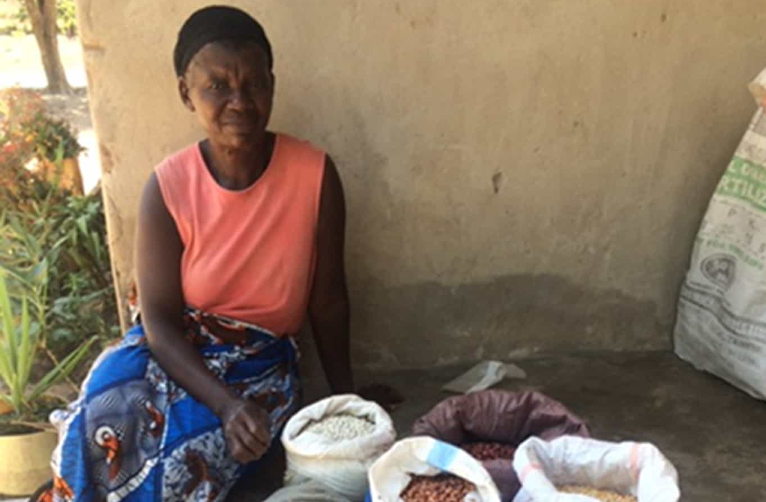The UN agreed a Declaration on the Rights of Peasants/Workers in Rural Areas to have "seed sovereignty"
“Sovereignty” is a febrile word at the moment. It’s invoked by national communities of all sizes - whether large one trying to free themselves from old ties, or smaller ones wanting to independently engage with those same wider systems.
In our work here at A/UK, we tend not to use it as a descriptor for the kinds of local and civic power we want to support. It can easily be used to justify a kind of executive power, one that doesn’t always have a strong relationship to deliberation, consultation and participation.
But in many struggling parts of the world, long at the sharp end of systems beyond their control, sovereignty is the word that signifies a strong defence of the powers of a territory, in a global context that does recognise sovereign powers as legitimate.
UN vote on Declaration of the Rights of Peasants and Other People Working In Rural Areas
So it was interesting to read about the approval by the UN General Assembly, just before Christmas, of the Declaration on the Rights of Peasants and other People Working in Rural Areas. The outcome - which was the product of some 17 years of diplomatic work led by the international peasant alliance La Via Campesina - was described by the Resilience website as “formally extending human rights protections to farmers whose ‘seed sovereignty’ is threatened by government and corporate practices”.
They explain further:
“As peasants we need the protection and respect for our values and for our role in society in achieving food sovereignty,” said Via Campesina coordinator Elizabeth Mpofu after the vote. Most developing countries voted in favor of the resolution, while many developed country representatives abstained. The only “no” votes came from the United States, United Kingdom, Australia, New Zealand, Hungary, Israel, and Sweden.
“To have an internationally recognized instrument at the highest level of governance that was written by and for peasants from every continent is a tremendous achievement,” said Jessie MacInnis of Canada’s National Farmers Union.
The challenge now, of course, is to mobilize small-scale farmers to claim those rights, which are threatened by efforts to impose rich-country crop breeding regulations onto less developed countries, where the vast majority of food is grown by peasant farmers using seeds they save and exchange.
The Resilience report goes on to describe what some peasant farmers on the ground will use this Declaration to try and defend:
Farmers are taking action. Mary Tembo welcomed us to her farm near Chongwe in rural Zambia. Trained several years ago by Kasisi Agricultural Training Center in organic agriculture, Tembo is part of the SKI network, which is growing out native crops so seed is available to local farmers.
Tembo pulled some chairs into the shade of a mango tree to escape the near-100-degree Fahrenheit heat, an unseasonable reminder of Southern Africa’s changing climate. Rains were late, as they had been several of the last few years. Farmers had prepared their land for planting but were waiting for a rainy season they could believe in.
Tembo didn’t seem worried. She still had some of her land in government-sponsored hybrid maize and chemical fertilizer, especially when she was lucky enough to get a government subsidy. But most of her land was in diverse native crops, chemical free for ten years.
“I see improvements from organic,” she explained, as Kasisi’s Austin Chalala translated for me from the local Nyanja language. “It takes more work, but we are now used to it.” The work involves more careful management of a diverse range of crops planted in ways that conserve and rebuild the soil: crop rotations, intercropping, conservation farming with minimal plowing, and the regular incorporation of crop residues and composted manure to build soil fertility.
She has six pigs, seven goats, and twenty-five chickens, which she says gives her enough manure for the farm.
She was most proud of her seeds. She disappeared into the darkness of her small home. I was surprised when she emerged with a large fertilizer bag. She untied the top of the bag and began to pull out her stores of homegrown organic seeds.
She laughed when I explained my surprise. She laid them out before us, a dazzling array: finger millet, orange maize, Bambara nuts, cowpeas, sorghum, soybeans, mung beans, three kinds of groundnuts, popcorn, common beans. All had been saved from her previous harvest. The contribution of chemical fertilizer to these crops was, clearly, just the bag.
She explained that some would be sold for seed. There is a growing market for these common crops that have all-but-disappeared with the government’s obsessive promotion of maize. Some she would share with the 50 other farmer members of the local SKI network. And some she and her family would happily consume. Crop diversity is certainly good for the soil, she said, but it’s even better for the body.
More here. If one want to imagone one battlefront against neoliberalism, it might be this: stop reducing us to singular best bets. We need our diversity to thrive.



